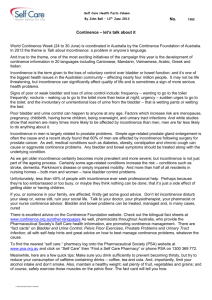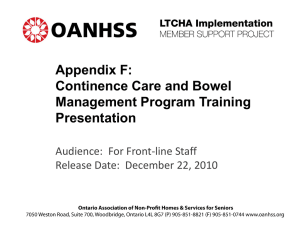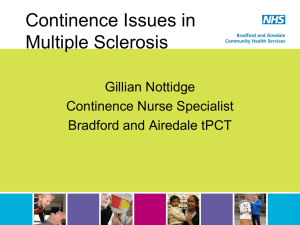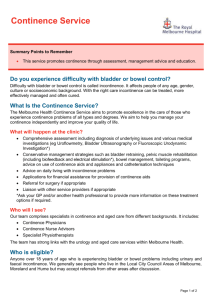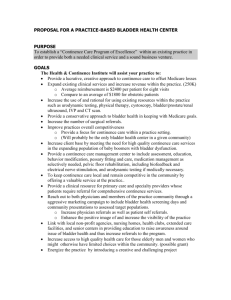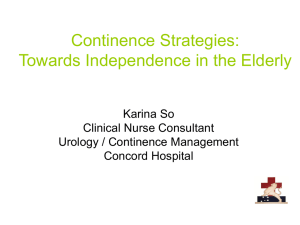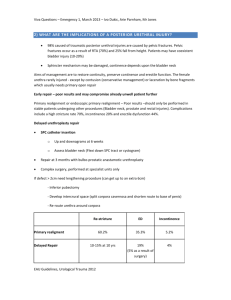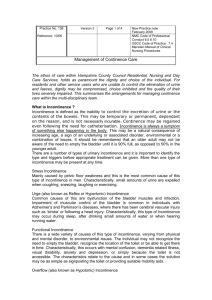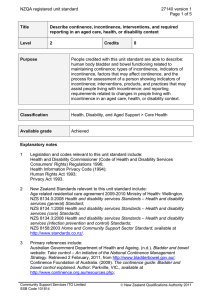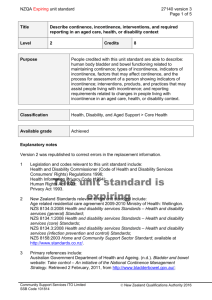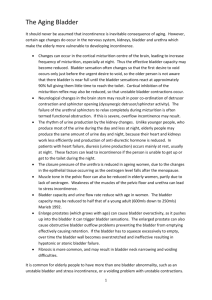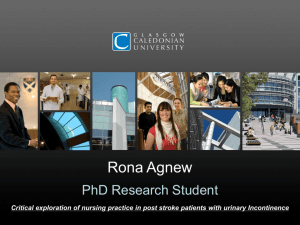Incontinence – let`s talk about it - Pharmaceutical Society of Australia
advertisement
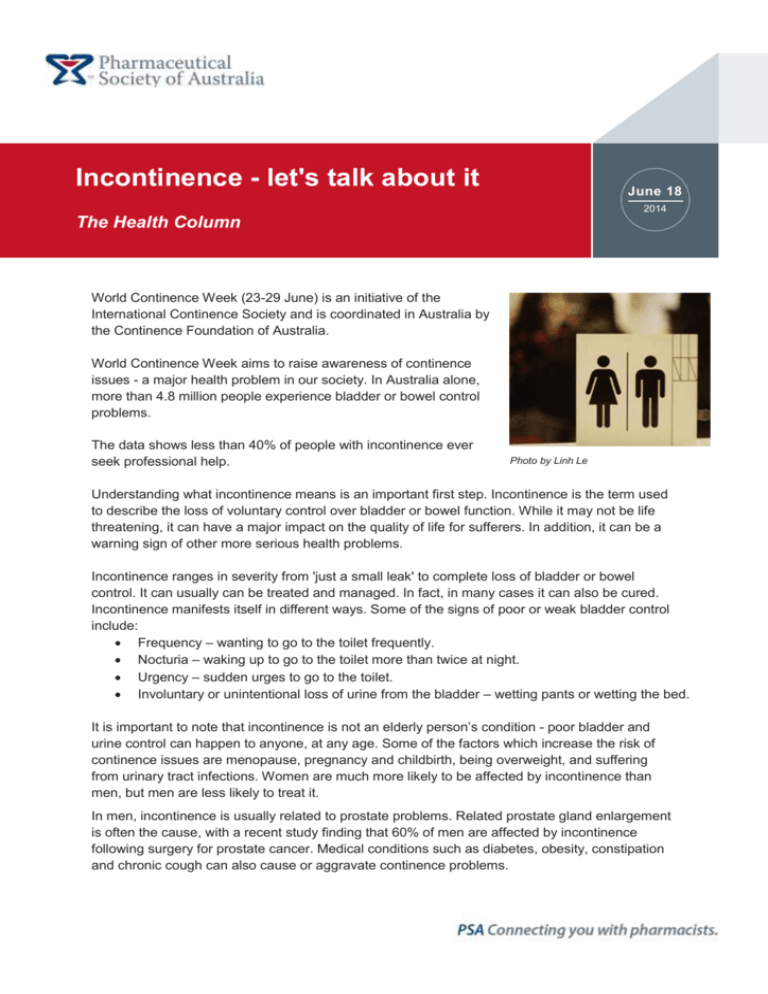
Incontinence - let's talk about it June 18 2014 The Health Column World Continence Week (23-29 June) is an initiative of the International Continence Society and is coordinated in Australia by the Continence Foundation of Australia. World Continence Week aims to raise awareness of continence issues - a major health problem in our society. In Australia alone, more than 4.8 million people experience bladder or bowel control problems. The data shows less than 40% of people with incontinence ever seek professional help. Photo by Linh Le Understanding what incontinence means is an important first step. Incontinence is the term used to describe the loss of voluntary control over bladder or bowel function. While it may not be life threatening, it can have a major impact on the quality of life for sufferers. In addition, it can be a warning sign of other more serious health problems. Incontinence ranges in severity from 'just a small leak' to complete loss of bladder or bowel control. It can usually can be treated and managed. In fact, in many cases it can also be cured. Incontinence manifests itself in different ways. Some of the signs of poor or weak bladder control include: Frequency – wanting to go to the toilet frequently. Nocturia – waking up to go to the toilet more than twice at night. Urgency – sudden urges to go to the toilet. Involuntary or unintentional loss of urine from the bladder – wetting pants or wetting the bed. It is important to note that incontinence is not an elderly person’s condition - poor bladder and urine control can happen to anyone, at any age. Some of the factors which increase the risk of continence issues are menopause, pregnancy and childbirth, being overweight, and suffering from urinary tract infections. Women are much more likely to be affected by incontinence than men, but men are less likely to treat it. In men, incontinence is usually related to prostate problems. Related prostate gland enlargement is often the cause, with a recent study finding that 60% of men are affected by incontinence following surgery for prostate cancer. Medical conditions such as diabetes, obesity, constipation and chronic cough can also cause or aggravate continence problems. Ageing does, however, play a big part and as we get older incontinence certainly becomes more prevalent and more severe. Incontinence is not just part of getting older; some age-related conditions - stroke, dementia, Parkinson’s disease or simply impaired mobility - increase the risk. Research shows more than half of all residents in nursing homes – both men and women – have bladder control problems. There are some things you can do to help. Make sure you drink enough to prevent becoming thirsty, but try to reduce your intake of drinks that have caffeine in them – coffee, tea and cola. Also, limit your alcohol intake and don’t smoke. Maintain a healthy weight; eat plenty of fruit, vegetables and grains; and of course, safely exercise those pelvic floor muscles. Your pharmacist can advise on weight management issues and quitting smoking. Importantly, if you experience bladder or bowel control problems seek help, as the symptoms will not go away on their own and may worsen over time. For advice speak to your pharmacist, doctor or a continence nurse advisor on the National Continence Helpline on 1800 33 00 66. For more information on incontinence, visit the Continence Foundation website. Check out the Bilingual Fact Sheets at www.continence.org.au/other-languages. Pharmacists throughout Australia, who provide the Pharmaceutical Society of Australia’s Self Care health information, are also promoting continence management. There are Self Care Fact Cards on topics such as Urinary Tract Infection and Bladder and Urine Control which both have self-help tips, directions for pelvic floor exercises and advice on how to best manage continence problems. To find your nearest Self Care pharmacy log onto the Pharmaceutical Society of Australia (PSA) website at www.psa.org.au and click on “Self Care” then “Find a Self Care Pharmacy” or phone PSA on 1300 369 772.
